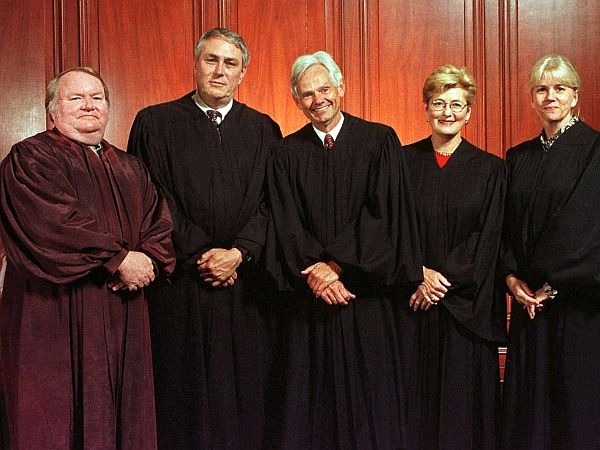
This week the U.S. Supreme Court has been taking up two cases involving same sex marriage.
The first dealt with California’s Proposition 8, which banned same-sex marriage. Another cases challenged the Federal Defense of Marriage Act, which defines marriage as between a man and a woman.
Back in 2000, Vermont became the first state to recognize same-sex partnerships with civil unions. While the state has since moved on to marriage, it was a ground breaking move at the time, and it was brought on by a 1999 Supreme Court decision in the case of Baker versus the state of Vermont.
Jeffrey Amestoy was the Chief Justice of the Vermont Supreme Court at the time.
Amestoy says the U.S. Supreme Court wouldn’t be hearing the case if it wasn’t for Vermont.
For some perspective, when the Baker ruling came down, no other state recognized partnerships of any kind and the Federal Defense of Marriage Act had passed a few years earlier.
"Both parties were competing with each other to see who could be most adverse to same-sex marriage," Amestoy said. "I think politicians at the time though there was an advantage to being adverse to same-sex couples. That has completely changed and I think once again, elected officials are behind the people. But I think they’re trying to catch up."
The Baker ruling said that denying same-sex couples marriage licenses based on gender was discriminatory. But it left it to the Legislature to decide whether to extend marriage for all couple, or to create a parallel status.
"Baker played an important part in developing the national dialogue about same-sex marriage," Amestoy said. He had the national climate in mind when making that decision.
"Whether that judgment was right or wrong, there’s been criticism on both sides about that I suppose. I think the experience in Vermont was instructive not only for Vermonters, but for the country at large because sometimes what a court can do best is make an opening argument about the constitutional issues and allow the process to develop in a way that strengthens rather than weakens the constitutional issues before it and I think that’s what happened in Vermont," Amestoy said.
When it comes to the current U.S. Supreme Court cases, Amestoy says after listening to the arguments he thinks it’s likely the Defense of Marriage Act will be struck down. "I certainly think it ought to be struck down," he added.
Amestoy retired in 2004. At the time he said, "I think my guess is that history will judge us favorably, at least in helping to contribute to a more civil and more complete discussion of the issue of gay rights in the United States,"
He says now, that if history does make that judgment, "it’s not about me, it’s about Vermonters, and I think I’d be satisfied that Vermont contributed to the significant advancement of human rights," Amestoy said.
Click listen to hear the interview.